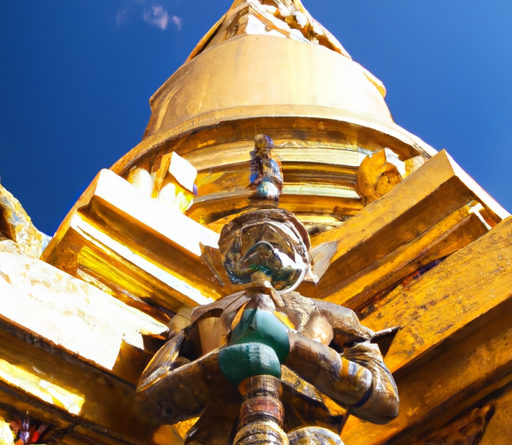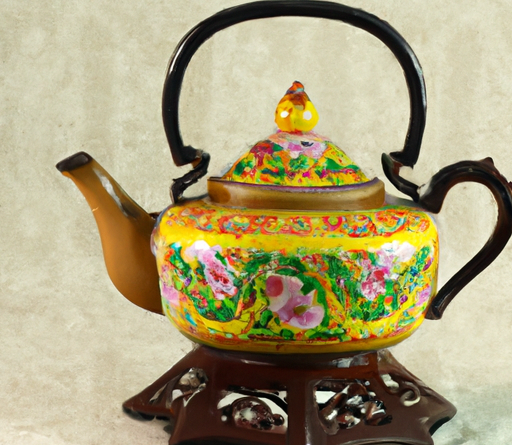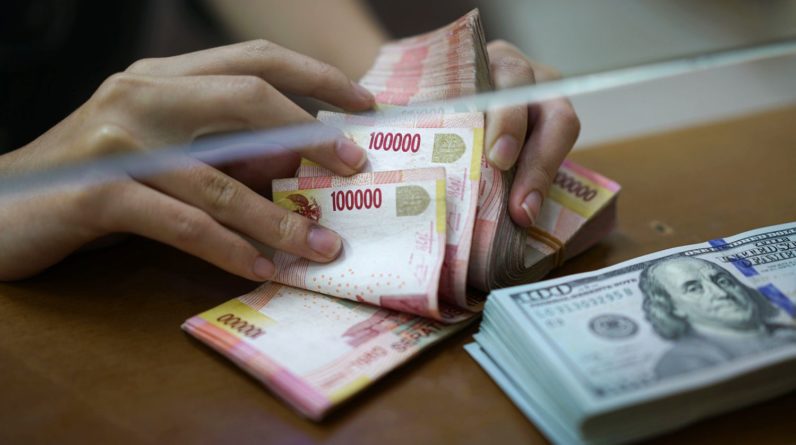
Are you planning on traveling to a foreign country and wondering where you can exchange your money? Well, you’ve come to the right place! In this article, we’ll explore the various options available to you when it comes to exchanging currency, so you can make the most informed decision.
Whether you’re heading to a bustling city or a remote beach destination, finding a reliable place to exchange your money is essential. We’ll discuss the different venues where you can exchange your currency, such as banks, currency exchange kiosks, airports, and even online services. We’ll also delve into the factors you should consider, such as exchange rates, fees, and convenience. By the end of this article, you’ll have a comprehensive understanding of where you can exchange your money and how to make the best choice for your travel needs. So, let’s get started and ensure you have a hassle-free experience when it comes to exchanging your currency!
Introduction
Traveling to another country can be an exciting and enriching experience. However, one of the practical aspects that needs to be sorted out before embarking on any trip is the currency exchange. Understanding the need to exchange money while traveling is crucial for a smooth and hassle-free journey. In this article, we will explore the importance of currency exchange, the various types of currency exchange options available, factors to consider, tips for finding currency exchange locations, preparing for currency exchange, making the actual exchange, safety and security measures to keep in mind, and alternative options for currency exchange.
Importance of Currency Exchange
When traveling to a foreign country, you will need to exchange your local currency for the currency of the destination country. This is essential for several reasons. Firstly, it ensures convenience and ease of financial transactions abroad. Without exchanging your currency, you wouldn’t be able to make any purchases or pay for services in the local currency. By exchanging your money, you can engage in everyday activities, such as shopping, dining, and sightseeing, without any hassle.
Secondly, currency exchange helps you avoid high transaction fees and unfavorable exchange rates. If you were to rely solely on using your local currency or credit cards abroad, you would likely incur substantial fees and charges. Banks and credit card companies often charge fees for international transactions, which can quickly add up. Additionally, using your credit card for every transaction may result in unfavorable exchange rates, as the rates offered by credit card companies are often less favorable compared to those you would get at a currency exchange provider.
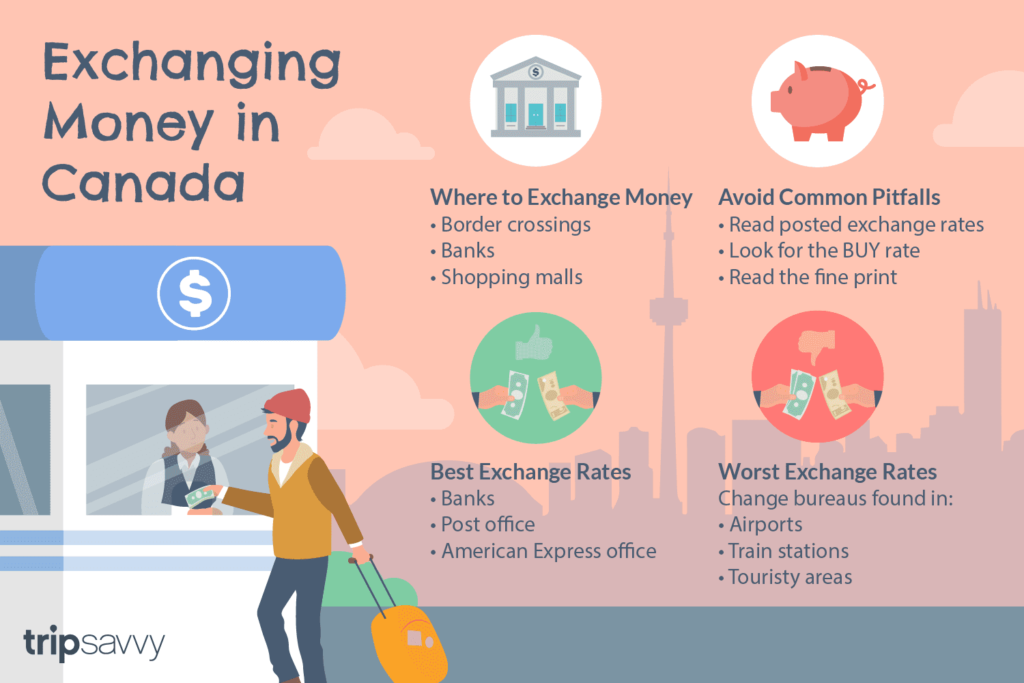
This image is property of www.tripsavvy.com.
Types of Currency Exchange
There are several types of currency exchange options available for travelers. Let’s explore the most common ones:
Banks and Financial Institutions
Banks and financial institutions are one of the most reliable and secure options for currency exchange. Most banks offer services to exchange currency for their customers, even if they don’t have an account with them. Banks typically provide competitive exchange rates, and the process is relatively straightforward. However, one downside of using banks for currency exchange is that they may have limited operating hours and may not be available on weekends or holidays.
Currency Exchange Bureaus
Currency exchange bureaus are establishments that specialize in exchanging foreign currency. They can often be found at airports, tourist areas, and city centers. Exchange bureaus are known for their convenience and accessibility, as they have extended operating hours, including weekends and holidays. However, it’s essential to compare exchange rates and fees between different bureaus, as they can vary significantly. Some bureaus may charge higher fees or offer less favorable exchange rates, so it’s crucial to do your research before making a decision.
ATMs and Cash Withdrawal
ATMs provide another convenient option for currency exchange. They are widely available in most countries and allow you to withdraw cash in the local currency using your debit or credit card. However, it’s important to be aware of any fees associated with international ATM withdrawals. Some banks may charge a flat fee or a percentage-based fee for each withdrawal. Additionally, you need to ensure that your card is compatible with the local ATM network and inform your bank about your travel plans to avoid any issues.
Factors to Consider
When deciding where to exchange your money, there are several factors to consider. These factors can significantly impact the overall cost and convenience of the currency exchange process. Here are the key factors to keep in mind:
Exchange Rates
Exchange rates are the rates at which one currency can be exchanged for another. It’s crucial to compare exchange rates offered by different providers to get the best value for your money. Exchange rates can vary daily, so it’s advisable to keep an eye on them and choose a provider offering competitive rates. Websites and mobile apps often provide real-time exchange rate information, making it easier to make an informed decision.
Service Fees and Commissions
Service fees and commissions are charges imposed by currency exchange providers for their services. Different providers may have different fee structures, so it’s essential to understand the fees involved before making a decision. Some providers may charge a flat fee, while others may charge a percentage-based fee on the amount being exchanged. Take into account both the exchange rate and the fees when comparing the overall cost of currency exchange.
Accessibility and Convenience
Consider the accessibility and convenience of the currency exchange location. Depending on your travel destination, you may want to choose a provider that is easily accessible and has operating hours that suit your needs. Take into account factors such as proximity to your accommodation, availability of multiple branches, and extended operating hours, especially if you plan to exchange money during weekends or holidays.
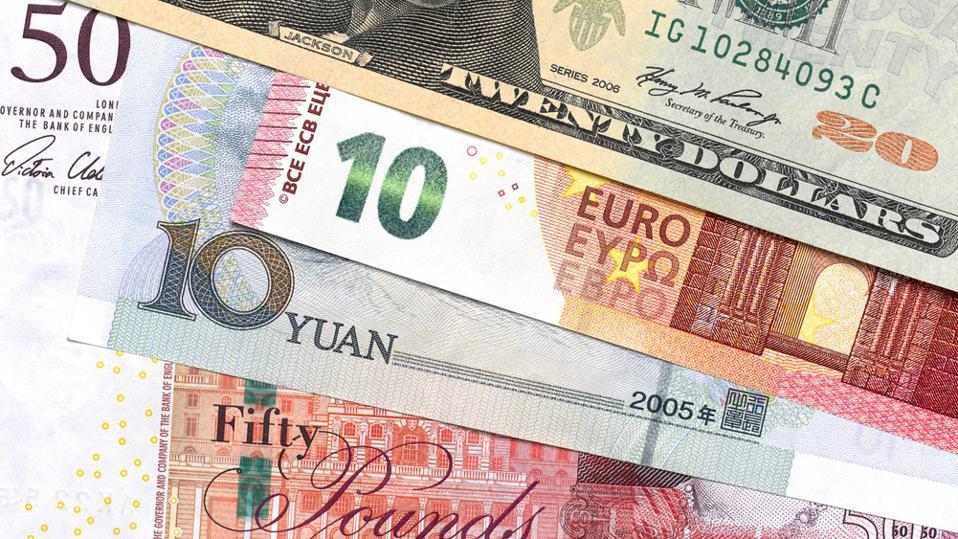
This image is property of www.forbes.com.
Finding Currency Exchange Locations
Finding currency exchange locations can be relatively easy with a bit of research and planning. Here are some tips to help you find the right currency exchange provider:
Researching Local Banks
Research and identify local banks in your travel destination that offer currency exchange services for foreign visitors. Check their operating hours, exchange rate policies, and any specific requirements they may have for non-account holders. This information can usually be found on the bank’s website or by contacting their customer service department.
Utilizing Online Currency Exchange Platforms
In today’s digital age, online currency exchange platforms offer convenience and competitive rates. These platforms allow you to exchange currency online and have it delivered to your doorstep or collected from designated locations. Before using an online platform, it’s crucial to research and read reviews to ensure their legitimacy and reputation.
Asking for Recommendations
Another way to find reliable currency exchange locations is by asking for recommendations from friends, family, or fellow travelers who have visited your travel destination before. Personal recommendations can provide valuable insights and help you make an informed decision.
Preparing for Currency Exchange
Before embarking on your trip, it’s essential to adequately prepare for currency exchange. Here are some key steps to take:
Knowing the Current Exchange Rate
Stay updated about the current exchange rates for the currency you wish to exchange. You can use online resources, mobile apps, or consult your bank or currency exchange provider for the most accurate and up-to-date information. Knowing the exchange rate will allow you to make informed decisions and compare rates offered by different providers.
Determining the Amount of Currency Needed
Estimate the amount of currency you will need for your trip. Consider factors such as accommodation, transportation, meals, activities, and emergency funds. It’s always better to have a bit of extra currency on hand to account for unforeseen expenses. However, avoid carrying excessive amounts of cash for security reasons.
Carrying Proper Identification
When exchanging currency, it’s important to carry proper identification documents. This is to comply with anti-money laundering regulations and to ensure that you are the rightful owner of the funds being exchanged. The exact identification requirements may vary depending on the provider, but it’s generally advisable to carry your passport or a government-issued identification document.
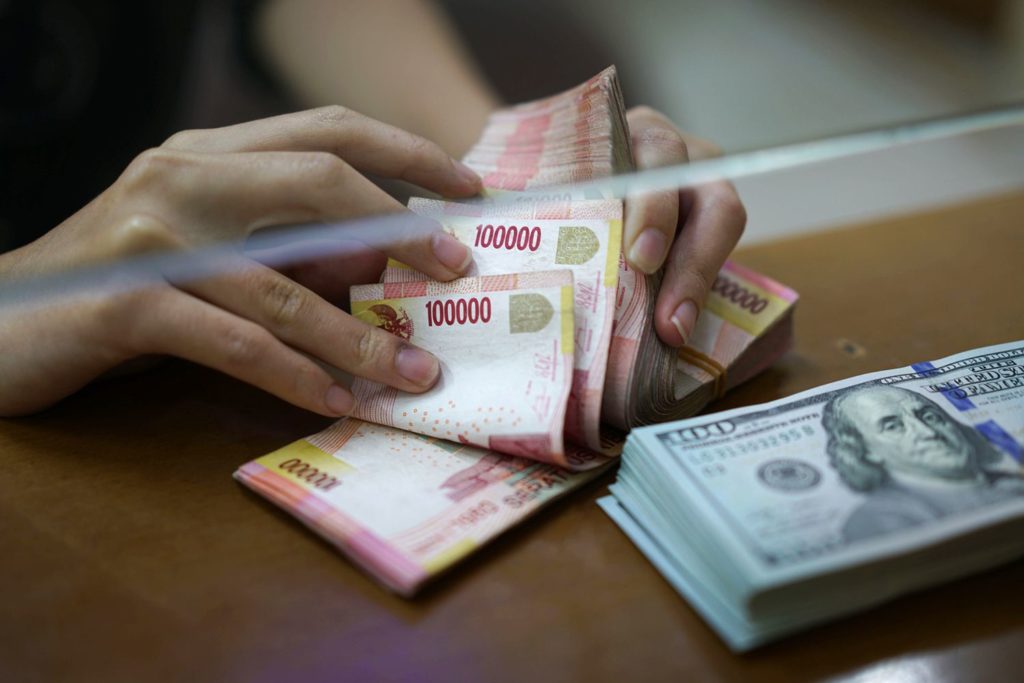
This image is property of www.investopedia.com.
Making the Exchange
Once you have researched and chosen a currency exchange provider, it’s time to make the actual exchange. Here are some tips to ensure a smooth process:
Comparing Rates and Fees
Before making the exchange, reconfirm the exchange rate and any applicable fees or commissions. Ensure that you understand the fee structure and verify that the overall cost is within your budget. If you find a more favorable rate or lower fees elsewhere, don’t hesitate to explore other options.
Verifying the Authenticity of Bills
When you receive the exchanged currency, it’s important to verify the authenticity of the bills. Familiarize yourself with the local currency’s security features, such as watermarks, holograms, and security threads. Counterfeit currency is a concern in some countries, so take the time to inspect the bills to avoid any issues during your trip.
Keeping Records
After the exchange, it’s advisable to keep records of the transaction. This includes keeping receipts, exchange confirmations, and any relevant documents. These records will be useful in case of any discrepancies or issues that arise later.
Safety and Security Measures
Ensuring the safety and security of your currency is paramount while traveling. Here are some safety measures to keep in mind:
Avoiding Unsecured Locations
When exchanging currency, avoid unsecured or unfamiliar locations. Stick to reputable currency exchange providers with established track records. Airports, hotels, and banks are generally safe options. Exercise caution when approached by individuals offering currency exchange services on the street, as this may involve illegal or fraudulent activities.
Keeping Currency Safely
While traveling, it’s crucial to keep your currency safe. Use a money belt or a secure wallet that is not easily accessible to pickpockets. Consider splitting your money into multiple locations, keeping a small amount in your wallet for daily expenses, and the majority of your funds in a more secure location, such as a hotel safe.
Using Credit Cards and Traveler’s Cheques
In addition to cash, consider using credit cards and traveler’s cheques for financial transactions. Credit cards provide an added layer of security, as they can be canceled if lost or stolen. Traveler’s cheques, although less commonly used today, are still accepted in some countries and can provide a secure alternative to carrying large sums of cash.
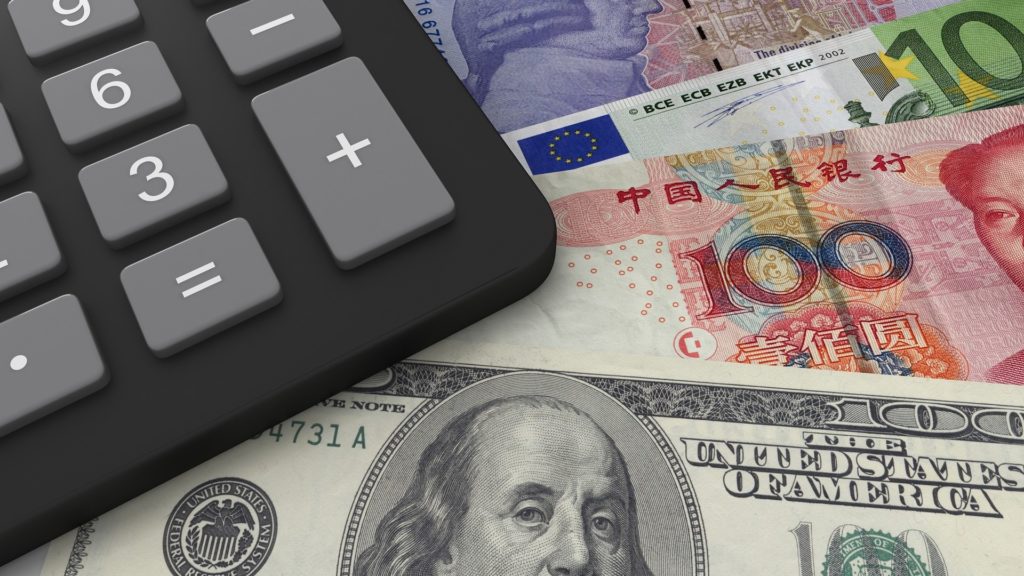
This image is property of cdn.gobankingrates.com.
Alternative Options for Currency Exchange
Apart from traditional currency exchange methods, there are alternative options available for those looking for innovative and convenient solutions. Here are two such options:
Using Peer-to-Peer Exchange Services
Peer-to-peer exchange services allow individuals to exchange currency directly with each other without involving traditional financial institutions. These services provide competitive rates and lower fees compared to banks or exchange bureaus. However, it’s essential to research the platform and ensure that it offers proper security measures and safeguards against fraudulent activity.
Digital Currencies and Cryptocurrencies
The rise of digital currencies and cryptocurrencies has opened up new possibilities for currency exchange. Some destinations accept cryptocurrencies as a form of payment, making it possible to avoid the hassle of traditional currency exchange altogether. However, it’s essential to research and understand the legal and practical implications of using cryptocurrencies in the destination country.
Conclusion
In conclusion, understanding where and how to exchange money while traveling is crucial for a smooth and efficient journey. By ensuring convenience, avoiding high transaction fees, and unfavorable exchange rates, you can make the most of your travel experience. Consider the different types of currency exchange options, factors to consider when choosing a provider, and the necessary preparations to have a stress-free currency exchange experience. Remember to prioritize safety and security measures while handling and storing your currency. Finally, keep an eye out for alternative options such as peer-to-peer exchange platforms and digital currencies, as they may provide innovative solutions for currency exchange. With proper planning and research, you can enjoy your travels without worrying about currency exchange hassles.
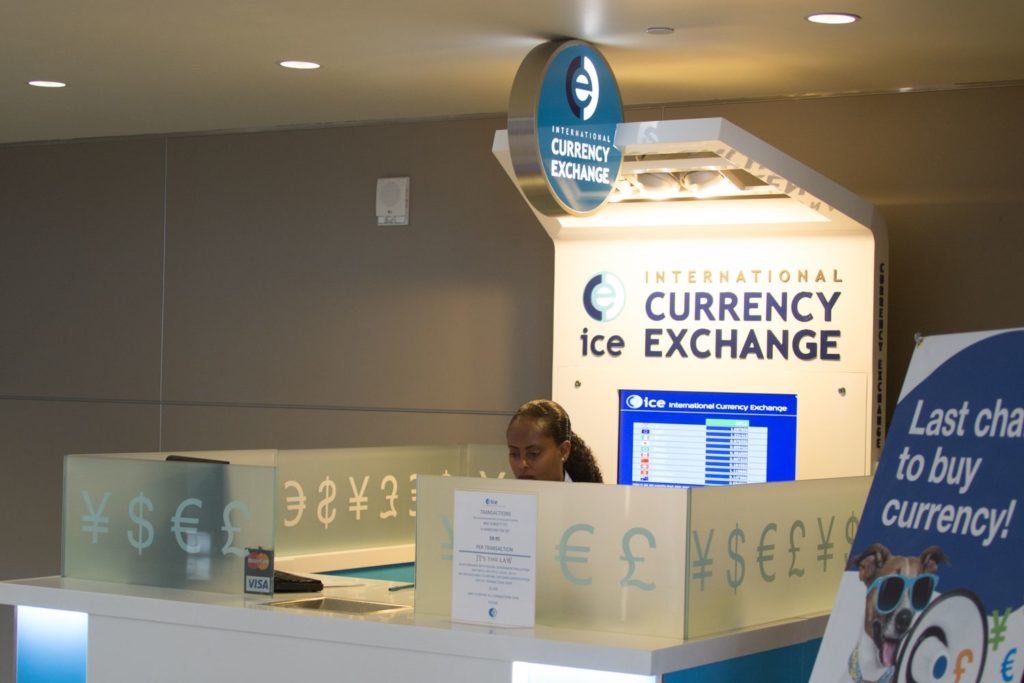
This image is property of www.investopedia.com.




